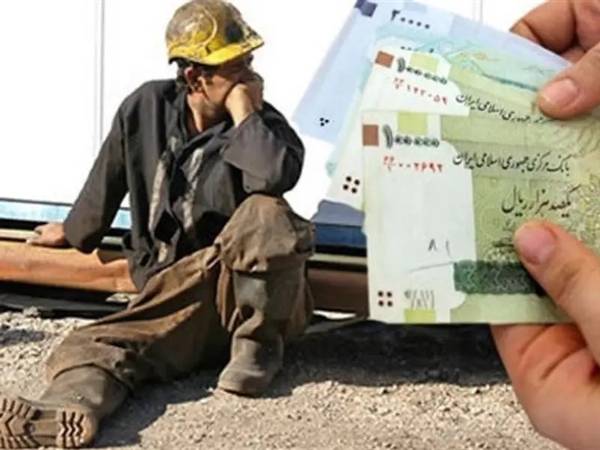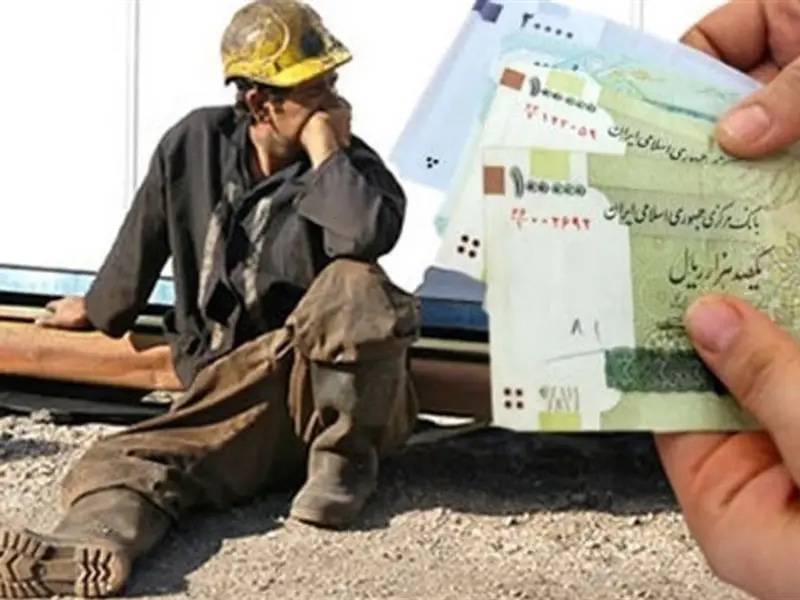The economic landscape for workers in Tehran is marked by severe hardship, with annual inflation hovering above 40% for five years while wages have only risen marginally.
As reported by the Tehran-based Fararu website, job listings for average workers in the city offer salaries ranging from a meager $116 (70 million rials) to $300 (180 million rials) for a grueling 12-hour workday. These figures highlight the harsh economic conditions faced by Iranian workers, reflecting the broader economic crisis gripping the country.
The Struggle with Minimum Wage
In March of this year, the Iranian government announced a 35% increase in the basic minimum wage, raising it to 110 million rials (approximately $186) with benefits. Despite this increment, the new minimum wage remains woefully insufficient, covering only almost half of the monthly $400 that the average household of three requires for basic food and necessities in Tehran. This shortfall is emblematic of the severe economic pressures on Iranian families, who must navigate a landscape of rampant inflation and currency devaluation.
Inflation and Currency Devaluation
Iran is grappling with an inflation rate of around 50%, and the national currency, the rial, has depreciated 15-fold since 2018, reaching historic lows. This dramatic devaluation has fueled widespread inflation, exacerbating poverty across the nation. The discrepancy between wages and the cost of living is stark, with many workers unable to afford basic necessities despite working long hours. This economic disparity further deepens the financial strain on millions of Iranians, pushing many to the brink of poverty.
Job Listings and Salaries: A Grim Reality
- Supermarkets and Shops
Job listings analyzed by Fararu reveal a grim picture of wages and working conditions in Tehran. Supermarket and shop workers face some of the harshest conditions. One advertiser offered between 90 million rials ($150) and 100 million rials ($169) per month for a full-time supermarket worker role from 8:00 AM to 8:00 PM, without insurance. Another shop in Farmanieh, a wealthy district in northern Greater Tehran, offered slightly better wages, ranging from 120 million rials ($200) to 150 million rials ($250) for similar work. Shelf stackers in supermarkets earn around 130 million rials ($215) and may receive additional benefits such as meals and a place to sleep.
- Fast Food and Restaurants
Fast food workers in the Olympic Village in District 22 earn between 70 million rials ($116) and 90 million rials ($150) for a 12-hour shift, from 11:00 AM to 11:00 PM. These positions often include meals and accommodation but lack insurance. Restaurant workers in areas like Javadiyeh in the South of Tehran face even longer hours, working from 9:00 AM to 11:00 PM, totaling 14 hours a day, with similar pay. These roles typically require a year of experience and may or may not include insurance, further complicating the workers' financial stability.
- Cleaning and Dishwashing Jobs
Workers in cleaning and dishwashing roles also endure difficult conditions. Motorcycle cleaning workers are offered 90 million rials ($150) to 150 million rials ($250), with meals and accommodation provided. They work seven days a week, including half days on Fridays, which is the official weekend. Dishwashers in Yousef Abad, in the north-central part of Tehran, earn about 110 million rials ($183), with shifts from 8:00 AM to 10:00 PM.
High-Salary Advertisements: Reality or Deception?
Some job advertisements boast salaries as high as 400 million rials ($680). However, these figures often come with significant conditions or when contacted by Fararu the advertiser cited a mistake in the advertisement. For instance, an auto parts company worker lists salaries ranging from 220 million rials ($370) to 350 million rials ($595), but the actual starting salary is 135 million rials ($230) when Fararu made inquiries with the advertiser. These higher figures are typically for more experienced or specialized roles and involve substantial overtime.
Similarly, an advertisement for electricians in Tehran Pars offers up to 25 million rials ($420). Yet again when inquiries were made by Fararu, the advertiser stated that the actual starting pay is 90 million rials ($150) and the salary only reaches higher levels after a probationary period and training.
The economic crisis in Iran, marked by high inflation and currency devaluation, has created an environment where workers in Tehran face significant financial challenges. The reported wages are insufficient to meet the basic needs of workers and their families, leading to widespread poverty, and underscoring the broader economic challenges facing the country.

